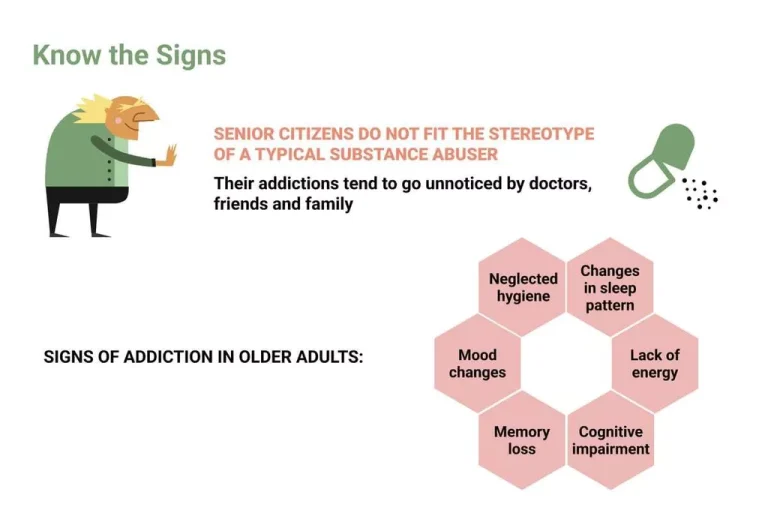
At Healthgrades, our Editorial Team works hard to develop complete, objective and meaningful health information to help people choose the right doctor, right hospital and right care. Our writers include physicians, pharmacists, and registered nurses with firsthand clinical experience. All condition, treatment and wellness content is medically reviewed by at least one medical professional ensuring the most accurate information possible. Alcohol withdrawal symptoms can vary widely depending on factors like how long a person has been drinking, how much they usually consume, and their overall health. Alcohol is a depressant, meaning it slows down brain activity and affects how the nervous system functions. Over time, the body compensates by increasing the production of stimulating neurotransmitters to balance out alcohol’s effects.

Epilepsy and Alcohol Consumption

The treatment of alcohol dependence is more important and should be prioritised before the prevention of further seizures. Alcohol acts as a CNS depressant through activation of the CNS Gamma-aminobutyric acid (GABA) receptors. Most often this is accomplished by administering benzodiazepines, though alternative medications such as barbiturates, ketamine, or propofol are also used.
Why Alcohol Withdrawal Seizures Are Dangerous
Now that we know alcohol withdrawal can undoubtedly cause seizures, let’s understand how it works. To prevent alcohol withdrawal seizures, only drink alcohol in moderation or avoid drinking it altogether. Alcohol withdrawal also disrupts the balance of stress hormones and the autonomic nervous system. This disruption can lead to increased cortisol levels, heightening stress responses and contributing to mood instability. At the same time, autonomic dysregulation may result in symptoms such as a rapid heart rate, high blood pressure, and excessive sweating. If you’ve been a heavy drinker for a long time, your body has become used to functioning under constant suppression of its central nervous system.
Worried About Experiencing Symptoms on This Alcohol Withdrawal Timeline? Don’t Do It Alone.
Alcohol can manipulate chemicals in your brain to create psychoactive effects. Yes, they are managed through medical detoxification, medications (e.g., benzodiazepines), and ongoing therapy. As the seizure ends, the person may lose bowel or bladder control due to relaxation of the body. Awareness or consciousness return slowly after the alcohol withdrawal seizure ends.

This “balance” becomes the new normal, explaining why we become more tolerant or less affected by alcohol. This tolerance is the reason why alcohol withdrawal occurs, and consequently, Sober living home alcohol withdrawal seizures. Kindling is a term describing a neurological phenomenon that makes alcohol withdrawal symptoms worse after previous withdrawals from depressant drugs. People who go through depressant withdrawal can have more severe symptoms with subsequent withdrawal periods.
Medical
The symptoms can develop quickly, underscoring the need for immediate medical attention and professional treatment. Without treatment, alcohol withdrawal seizures can progress to status epilepticus or delirium tremens, both of which are life-threatening complications. That’s why it’s important to do an alcohol detox under medical supervision at an addiction treatment center. Alcohol consumption spans a spectrum ranging from low risk to severe alcohol use disorder (AUD). Not everyone who experiences alcohol withdrawal will experience delirium tremens. Alcohol use disorders cover a range of severity from mild to moderate to severe.
Differentiating Seizures from Other Conditions
- The dangerous withdrawal symptoms that are more likely through kindling include seizures, heart problems, and death.
- Excessive alcohol use can lead to delirium tremens, characterized by severe hyperactive responses, including seizures, which pose serious risks.
- The length of time you were drinking heavily, the amount you would drink regularly, and the amount you drank last.
- Seeking help for addiction may seem daunting and possibly even scary, but there are several organizations that can provide support.
In most cases, alcohol affects these targets only at high, suprapharmacologic concentrations. However, certain GABAA-receptor isoforms are exquisitely sensitive to alcohol so that functionally relevant effects can occur at concentrations within the intoxicating range (32,33). Alcohol withdrawal symptoms stem from significant disruptions in the body’s internal balance, which occur as it tries to adapt to the absence of a substance it has grown dependent on. These changes are not merely psychological but deeply rooted in physiological processes that affect multiple systems in the body. While you’re in inpatient treatment, you may also be treated with IV fluid, which can help keep you hydrated through the withdrawal process. Medical detox programs may also involve therapies to address alcohol use disorders.

In this article, we will explore what alcohol withdrawal seizures are, their causes, symptoms, and why they are considered dangerous. Abruptly stopping alcohol use after prolonged heavy drinking can trigger alcohol withdrawal seizures due to changes in brain chemistry. It is crucial to distinguish alcohol-related seizures from other medical conditions, such as alcohol poisoning, which can also lead to seizures from alcohol withdrawal seizures due to metabolic disturbances.
- Drugs like benzodiazepines are often used to treat alcohol withdrawal, and they can also be used to taper you off alcohol.
- They can ease many alcohol withdrawal symptoms, allowing your body to adjust slowly.
- The primary treatment includes administering benzodiazepines, which are effective for managing acute withdrawal symptoms and preventing further seizures.
While other types of alcohol are poisonous to humans, it’s thought that we developed the ability to drink ethanol because it’s naturally produced in fallen fruit. The production and consumption of alcohol have also been practiced for thousands of years. When you drink heavily, it can lead to various serious consequences, including dependence and addiction. Alcohol withdrawal seizures are a serious and potentially life-threatening condition that requires immediate medical attention and professional care.
